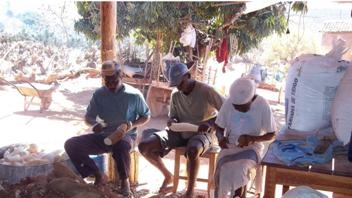The island of Porto do Campo, a quilombola settlement – formed by the descendants of escaped slaves – is a tiny, isolated spot on the map of Bahia. “We struggle with the same health, housing and education issues found in similar communities all over Brazil. The community has no hospitals, and there is only one elementary school,” says José Ramos, a volunteer leader.
Still, he and Porto do Campo’s other 300 inhabitants have reasons to be hopeful. A project by the World Bank and the Japan Trust Fund, “Leveling the Playing Field for Quilombola Communities in Northeastern Brazil,” will enable them to fight for better public policies.
The initiative aims at improving the lives of 15,750 families in three northeastern Brazilian states: Bahia, Ceará, and Pernambuco.
An important result can already be gauged: three years after the project began, communities are able to start their own agriculture and craftsmanship projects, seek funding and get technical assistance for implementation. All of which was made possible with the help of courses and seminars that helped form and strengthen local leadership.
Reducing vulnerability
In addition, the new leaders are now capable of enforcing their land use rights. “It is very important that these communities form associations. When quilombola lands are formally recognized as such, the land tenure is given not to an individual, but to the institution,” explains Alexandro Reis, Director for Afro-Brazilian Heritage Protection at Palmares Foundation (attached to Brazil’s Ministry of Culture).
“That way, they have easier access to credit and to social security for agricultural labor. Also, they become less vulnerable to political interests.”
So far, the project has helped found 25 quilombola associations in Bahia, as well as consolidating a further 50. In Pernambuco and Ceará, the project supported the creation of 27 associations (11 and 16, respectively).

